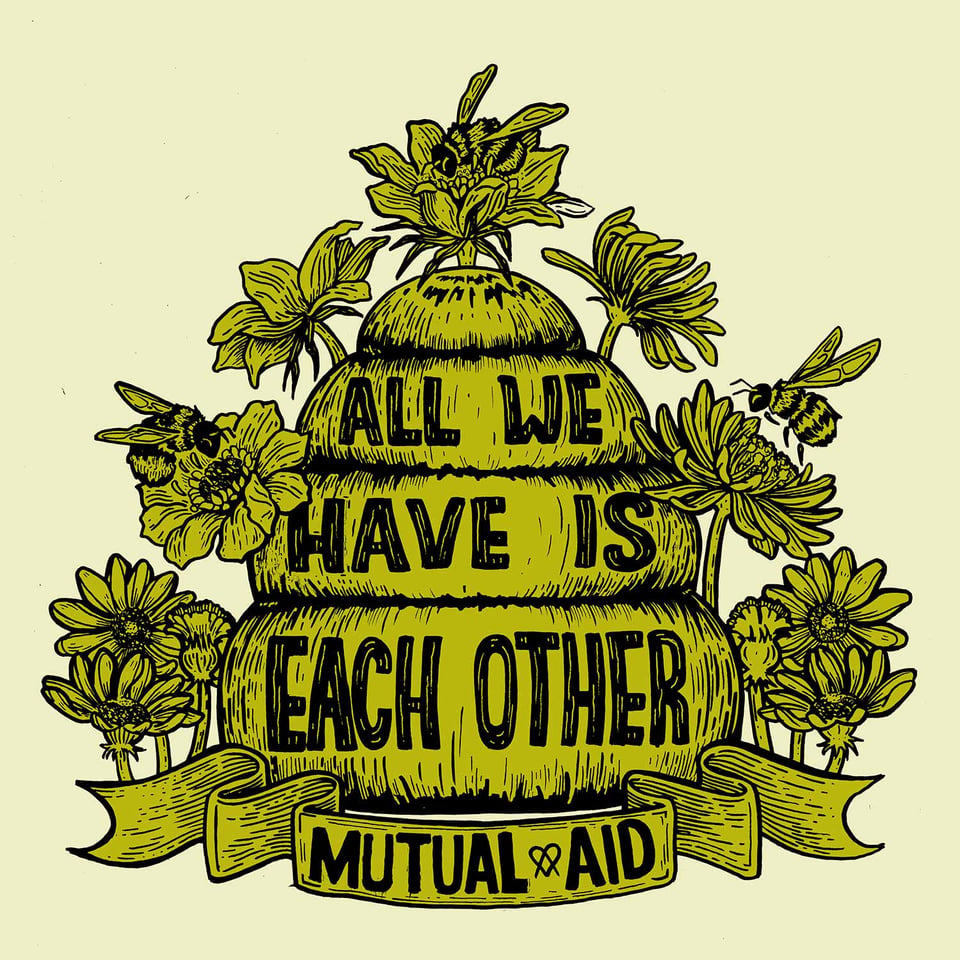You're More Prepared Than You Think
To prepare for rising authoritarianism, we can commit to keeping each other safe.

Thinking about organizing to protect our rights and freedoms under President Trump and GOP rule can feel overwhelming. Will they enact a nationwide abortion ban or classify Plan B and birth control as controlled substances? Will they imprison journalists and lawyers? Will they further criminalize protests? Will they enact drastic cuts to our already frayed social safety net?
Surprisingly, in spite of these many threats, I’ve avoided an all-out doom spiral. I have done this mostly by reminding myself that authoritarianism is not new to the United States. As such, there is a long history of fighting authoritarianism, and therefore models that we can draw upon.
When I consider the various worst-case scenarios ahead, I remember that many of them, initially at least, pale in comparison to what Indigenous people and Black Americans endured from the founding of the country through Jim Crow and beyond. I think about the long history of disenfranchisement and political violence and I am reminded that people always found a way to claim their dignity and resist their dehumanization.
The primary tools people used then are available to us now. People took care of each other through mutual aid. People created learning communities where they taught history, organizing tactics, and survival skills. And people went on strike, utilizing their economic leverage to demand better working or living conditions. Whether it is the Atlanta Washerwomen’s Strike, the Green Book, the 504 sit-in, the Black Panther Party’s free breakfast program, or the Dakota Access Pipeline protests at Standing Rock, U.S. history is filled with examples of effective resistance in the face of stifling oppression.
But we don’t have to reach into the past to find role models for effective organizing. Under Governor Ron DeSantis, Florida has been a laboratory of extreme right-wing politics. As the most recent issue of Jewish Currents details, since 2018 Florida has:
passed legislation to decertify public sector unions that don’t meet arbitrary membership thresholds, causing 42,000 union members to lose their representation; mandated that businesses with 25 or more employees use a software called E-Verify, which is designed to discriminate against undocumented workers; required healthcare providers working at hospitals that receive Medicaid funding to inquire about a patient’s immigration status and then pass that information to the state; banned abortions after six weeks of pregnancy in a state that was previously the fourth-largest abortion provider in the country; banned any funding for programs that support diversity, equity, and inclusion at public colleges and universities; empowered a tiny minority of conservative parents to object to certain books being available in classrooms; dramatically expanded charter schools while siphoning funding from public education; banned any local regulation to protect workers against extreme heat; passed a law to delete the words “climate change” from state statutes; restricted gender-affirming healthcare; criminalized drag shows; banned trans girls from school sports; and expanded the collaboration between local law enforcement and immigration authorities.
This laundry list of horrors was just a way to establish the context for interviews with eight organizers from Florida. I found their experiences clarifying, sobering, and inspiring all at once. One common theme should come as no surprise: the importance of relationships. In particular, the organizers emphasized the importance of building relationships with people who might not be obvious allies by focusing on common material concerns such as a living wage or clean air. They don’t do this by throwing vulnerable people under the bus however. Rather they consistently draw people’s attention to the real enemy, bosses and politicians who scapegoat groups like immigrants and LGBTQ+ people in order to distract people from the real exploitation underway.
Relationships also undergird mutual aid efforts which in many cases are lifesaving. Ashley Mayfaire, founder of TransSocial, has helped organize access to networks to healthcare in the face of terrible repression in Florida. As she explains, “We want to keep each other safe, no matter who is in power, no matter which laws come down.” Similarly, Gerardo Reyes Chavez of the Coalition of Immokalee Workers described how they were able to implement heat safety protocols even though the Florida legislature banned municipal level protections. This is the ethos we will all need to practice moving forward.
While learning from organizers in the South of the past and present, many of us can also draw on firsthand experience. COVID prepared us in many ways for whatever might come. We lived through a collapse of infrastructure and systemic abandonment in 2020. We found ways to keep ourselves and others safe. In 2020 we fought for and won expanded unemployment insurance, eviction moratoriums, decarceration, and stimulus checks. Free fridges popped up all over New York City and remain today. And while that moment of collective solidarity feels very fleeting in hindsight, we can still look back to it as a template for uncertain circumstances ahead.
I know deep down that my impulse to prepare is partly a naive fantasy bred of anxiety. There is not way to totally prepare for the chaos and suffering that Trump’s presidency is likely to unleash. I will need to be flexible and imaginative to respond to each new moment. Nonetheless I am finding comfort by remembering a simple strategy. It’s one being practiced already across the United States just as it has been for centuries: look out for each other, no matter the cost.
Other Recent Writing:

A Resilience Reading List • Buttondown
Building Community with Love and Patience
Other Recommendations for Reading, Listening, and Watching:
